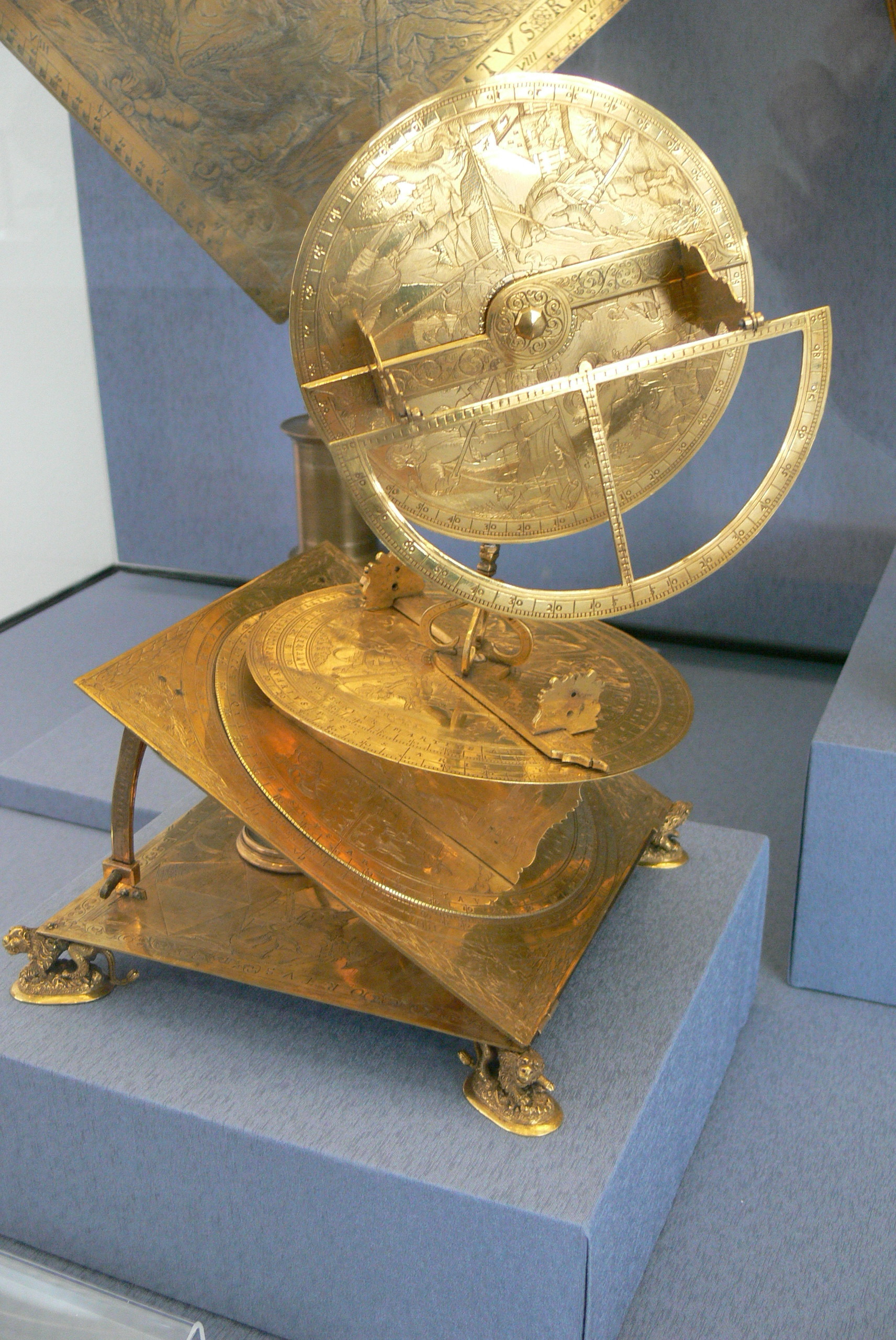Jābir Ibn Aflaḥ on:
[Wikipedia]
[Google]
[Amazon]
Abū Muḥammad Jābir ibn Aflaḥ ( ar, أبو محمد جابر بن أفلح, la, Geber/Gebir; 1100–1150) was an Arab
 He invented an observational instrument known as the torquetum, a mechanical device to transform between spherical coordinate systems.
He invented an observational instrument known as the torquetum, a mechanical device to transform between spherical coordinate systems.
PDF version
Muslim
Muslims ( ar, المسلمون, , ) are people who adhere to Islam, a monotheistic religion belonging to the Abrahamic tradition. They consider the Quran, the foundational religious text of Islam, to be the verbatim word of the God of Abrah ...
astronomer and mathematician from Seville, who was active in 12th century al-Andalus. His work ''Iṣlāḥ al-Majisṭi'' (Correction of the ''Almagest'') influenced Islamic
Islam (; ar, ۘالِإسلَام, , ) is an Abrahamic monotheistic religion centred primarily around the Quran, a religious text considered by Muslims to be the direct word of God (or '' Allah'') as it was revealed to Muhammad, the mai ...
, Jewish, and Christian
Christians () are people who follow or adhere to Christianity, a monotheistic Abrahamic religion based on the life and teachings of Jesus Christ. The words ''Christ'' and ''Christian'' derive from the Koine Greek title ''Christós'' (Χρι ...
astronomers.
''Iṣlāḥ al-Majisṭi (Correction of the Almagest)''
This work is a commentary and reworking of Ptolemy's ''Almagest
The ''Almagest'' is a 2nd-century Greek-language mathematical and astronomical treatise on the apparent motions of the stars and planetary paths, written by Claudius Ptolemy ( ). One of the most influential scientific texts in history, it canoni ...
'' and is the first criticism of it in the Islamic West. He particularly criticized the mathematical basis of the work. For example, he replaced the use of Menelaus' theorem with ones based on spherical trigonometry, in what seems to be an attempt to increase the mathematical precision of the work. These theorems had been developed by a group of 10th century Islamic mathematicians who included Abū al-Wafā' Būzjānī and then also by Abu Abd Allah Muhammad ibn Muadh Al-Jayyani who worked in Andalusia during the 11th century. Jābir does not credit any of these authors and does not refer to a single Islamic author in this work.
One substantial change Jābir made to Ptolemy's account is that he placed the orbits of Venus and Mercury
Mercury commonly refers to:
* Mercury (planet), the nearest planet to the Sun
* Mercury (element), a metallic chemical element with the symbol Hg
* Mercury (mythology), a Roman god
Mercury or The Mercury may also refer to:
Companies
* Merc ...
, the minor planets, outside that of the Sun, rather than between the Moon and the Sun as had been the case in the original work.
Inventor
 He invented an observational instrument known as the torquetum, a mechanical device to transform between spherical coordinate systems.
He invented an observational instrument known as the torquetum, a mechanical device to transform between spherical coordinate systems.
Influence
Several later Islamic authors were influenced by Jābir, including Ibn Rushd (Averroes) andNur ad-Din al-Betrugi
Nur ad-Din al-Bitruji () (also spelled Nur al-Din Ibn Ishaq al-Betrugi and Abu Ishâk ibn al-Bitrogi) (known in the West by the Latinized name of Alpetragius) (died c. 1204) was an Iberian-Arab astronomer and a Qadi in al-Andalus. Al-Biṭrūjī ...
, both of whom worked in Andalusia. The work was transmitted to Egypt in the 12th century by Maimonides and further east by the end of the 13th century.
The work was translated from the Arabic into both Hebrew and Latin, the latter by Gerard of Cremona, who Latinized his name as "Geber". Through that channel it had a wide influence on later European mathematicians and astronomers and helped to promote trigonometry in Europe.
Much of the material on spherical trigonometry in Regiomontanus' ''On Triangles'' (c.1463) was taken directly and without credit from Jābir's work, as noted in the 16th century by Gerolamo Cardano., p.4
Notes
References
*PDF version
External links
* {{DEFAULTSORT:Ibn Aflah, Jabir 1100 births 1150 deaths 12th-century Arabs People from Seville Astronomers of Al-Andalus Mathematicians of Al-Andalus Inventors of the medieval Islamic world Al-Andalus scientific instrument makers 12th-century mathematicians 12th-century astronomers 12th-century Al-Andalus writers